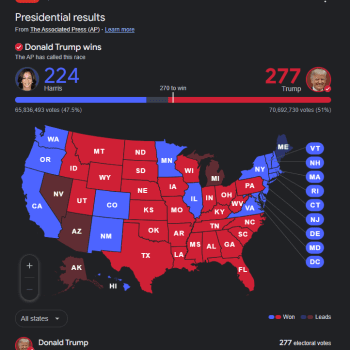As a Leftist in the United States, it seems appropriate to disclose the Leftist agenda among Leftists in the United States.
The Leftist Agenda Revealed
At the top of the list is to get people to recognize that the Democratic Party is not “Leftist.” It may be to the left of the Republican party, but that’s precisely the point. Liberal and conservative, right and left, are terms of comparison. They don’t designate absolute stances. Whether educational institutions like Wheaton College (the one near Chicago, not the one in Massachusetts) or Fuller Theological Seminary are “liberal” or “conservative” depends very much on whom you ask and where they are viewing it from.
Most Americans, not having lived elsewhere in the world and paying very little attention to international politics, are simply unaware of the range of political and economic stances that are possible and that exist in most democracies. Often the most extreme parties are excluded since their ideologies are directly opposed to the aims of an inclusive liberal democracy. (Note that liberal democracy does not mean “left-leaning,” a common misunderstanding.
There are, to be sure, individuals in the Democratic party who are on the left side of the spectrum on certain issues. One of the many problems with the de facto and unnecessary two party system in the United States is that it invites extremists to get under those umbrellas. It also conveys the impression that they are opposites when in fact in the context of any multi-party democracy in Europe they would be two right-leaning parties that might well make a coalition in order to keep actual leftists out of power.
If the Democrats as a whole are even slightly on the left side of the spectrum (which I don’t think is the case, but as I said, it depends on how one views the spectrum), they are still very much centrists, with little to no interest in radically reinventing the U.S. economy away from its love of unbridled capitalism. At most, the majority of Democrats will leave that system intact and just add more safety nets for those who are detrimentally impacted.
Labels Compare, Not Delineate
Terms like liberal and conservative, right and left, are also economic and theological terms as well as political terms. There’s thus a lot of confusion. You’ll find progressive Christians who are theologically conservative and economically progressive, and progressive Christians who are theologically progressive and politically conservative.
And so it is also part of my own personal agenda to advocate for clearer labeling. (Writing this was inspired by a commenter who used “Leftists” not in an accurate way but in the manner of bullying labels that have become characteristic of so much recent political discourse.)
The Bible’s Leftist Agenda
Hopefully the above has not seemed like the sort of thing you get in YouTube ads and nowadays all too often even recipes, where you are promised something and then read and read or watch and watch and it does not deliver. It was crucial to make clear that I speak here about my own perspective, which is not that of everyone who falls on the political, economic, or religious left, and that here my focus is on my stance on the economy and the political infrastructure that relates to it.
My views on this are not shaped by Marxism, and I’m not a Communist. My views are shaped by the Bible as well as comparison of global approaches in the present day. Of course, the early church experimented with communism, but it isn’t clear that it was a successful experiment. Marx and Engels discussed Christian socialism and communism in their Communist Manifesto, explaining why they were unsatisfied with it and where they disagreed with it.
The Bible doesn’t consistently teach any particular economic system, except in the sense that the Torah mandated leaving the edges of one’s field for the poor (legislated social welfare), a tithe (taxation), and the Jubilee year (periodic debt cancellation once a generation to prevent excessive downward or upward mobility). It isn’t clear that those laws achieved what they aimed to in their ancient context, and they certainly would not if applied directly in our time.
Yet the principles are there consistently throughout, that everyone should have enough, that (to echo John the Baptist) if one person has two coats then one of them should go to someone who doesn’t have even one. That’s redistribution. In their ancient totalitarian context they focused on what individuals do, but the hope for the kingdom of God was for society to be transformed.
Thus in the context of a democracy, those concerns for equality and fairness should be woven into the system and not merely depend on the rich giving charity.
Leaving the Details to the Experts
Beyond this broad concern, I leave it entirely to the economists to discuss, experiment, and decide what to recommend. It is definitely worth trying something other than what we have. We are under no obligation practical or ideological to continue with things the way they are. Over the years we have raised and lowered taxes. We have implemented programs like social security. We have created public schooling, and conversely have privatized national telecommunications and utilities companies. The past does impose constraints but they are not absolute. We can make changes, just as we have done before.
Is a basic income model the answer? It wouldn’t be perfect, but what we have is far from perfect, so that’s not a criticism. The only question is whether it might be better, and if so, we should try it.
Perhaps the biggest problem in our society is that expertise is widely denigrated. We would be better off if we elected people to represent us who have studied the areas that they will oversee, such as international relations, the environment, education, and the economy. Unlike most online pundits, I’m not going to say “here is the best economic system.” I can of course (and as a voter must) look at the evidence. But ultimately, just as much as I want a more just economic system, I want a humbler populace where we recognize that we need to trust (as well as hold accountable) doctors, mechanics, and politicians to do things with a higher level of expertise than most of us have.
I’d be fine if we just implemented things like universal healthcare. Most Americans have no idea what it would be like in a European country where healthcare is “free.” Of course, it isn’t free. We all pay for it. One way or another, it is paid for. If it is paid for through taxation, and those who earn or have more pay more in taxes, then your current income and wealth don’t need to determine whether you’re likely to survive a bout with cancer or be in long-term debt because you had a child.
I’m a Leftist, but not a far leftist. The stance in Europe tends to be labeled “social democracy.” Ultimately, the key thing is that we change our economy to address inequity, and that we do so in a way that is enacted through the collective expression of our democratic will through government. When government is “of the people, by the people, for the people” then “big government” ceases to be an insult. Let’s do big things together to make our society better. That’s my “Leftist agenda.” If you disagree with it, I’d love to know why.
For Further Reading
Here are some things I have written previously about this topic.













